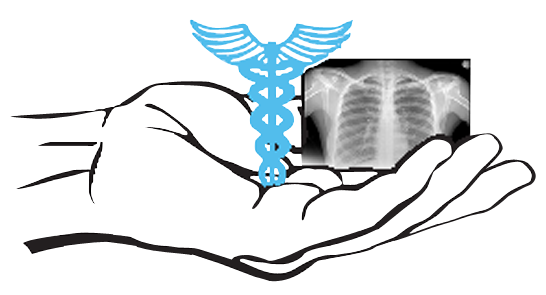X-Ray FAQs – Answers to all of your questions

Here are a list of the most common x-ray related questions. We give you a complete breakdown of everything you want to know regarding x-rays to ease your mind and help you make educated decisions about your health.
1. What are x-ray uses?
The most common use of an x-ray is to identify broken bones. However, x-rays are also useful for diagnostic imaging, treating cancer, shrinking tumors and more.
2. What are x-rays?
X-rays are electromagnetic waves, also known as radiation, that take images of the inside of your body. Medical imaging, diagnosing diseases, monitoring therapy and treatment planning are a few of the reasons for using x-rays. The diagnostic imaging process is done with an x-ray machine. Companies, like Palm Diagnostics, perform mobile diagnostic imaging at a location of choice by the customer or at a diagnostic imaging center.
3. What should I expect during an x-ray?
The x-ray technologist will position you and then ask you to hold still until the pictures are taken. This will only take a few seconds. The process is not painful and is fairly simple.
4. How do x-rays work?
An x-ray technician uses an x-ray machine which beams electromagnetic waves through your bones to take images of the inside of your body. It is a painless and quick procedure. The image projects onto a metal film. Lastly, a radiologist interprets the results.
5. When were x-rays invented?
The x-ray was invented by accident in 1895 by Wilhelm Roentgen, a physics professor. He began using x-rays six months later in 1896. In 1987, during the Balkan War, the military battlefield began using mobile x-rays to help find bullets in people.
6. Are x-rays safe?
Yes, x-rays have an extremely low level of radiation and are safe. According to the FDA, when medically recommended, the benefit of x-rays far outweighs the risk. It’s important to use a trusted diagnostic imaging company and x-ray technician. Palm Diagnostics is a reputable company with board certified radiologists.
7. Are x-rays harmful? Can x-rays cause cancer?
Overexposure to radiation can be harmful. Too much radiation can cause cancer, but in small doses is safe, according to the FDA. It is best for a healthcare provider to perform x-rays only when medically necessary. In general, x-rays only require a tiny amount of radiation which makes the risk extremely low. Health care providers can advise patients of when the benefits outweigh the risk.
8. How much does an x-ray cost?
X-ray costs depend on the provider, how many x-rays you need and the size of the x-ray. Typically, insurance, medicare or medicaid will cover the cost of x-rays. Flexible companies, like Palm Diagnostics, will work with you, to help you get the medical care you need. Even if you do not have insurance, Palm Diagnostics will work with you!
If you have additional questions about x-rays, we would be happy to assist you. Feel free to contact us at www.palmdiagnostics.com/contact-us/
Find Palm Diagnostics on Facebook:
